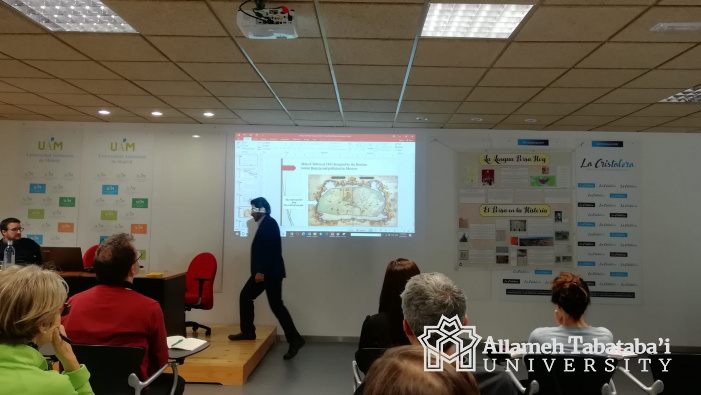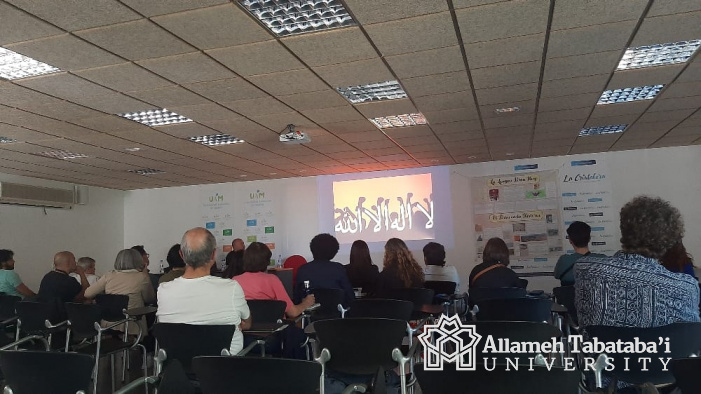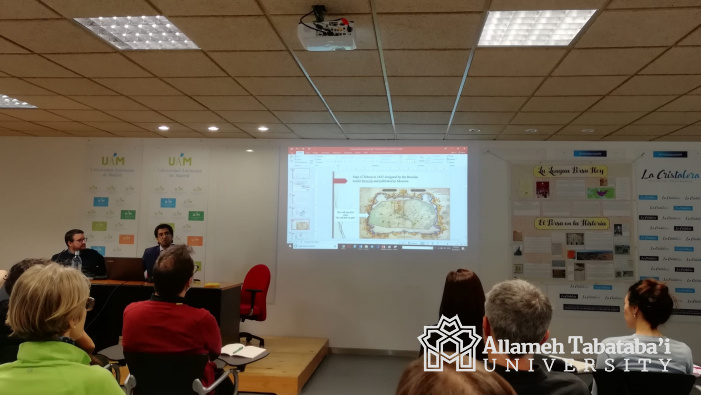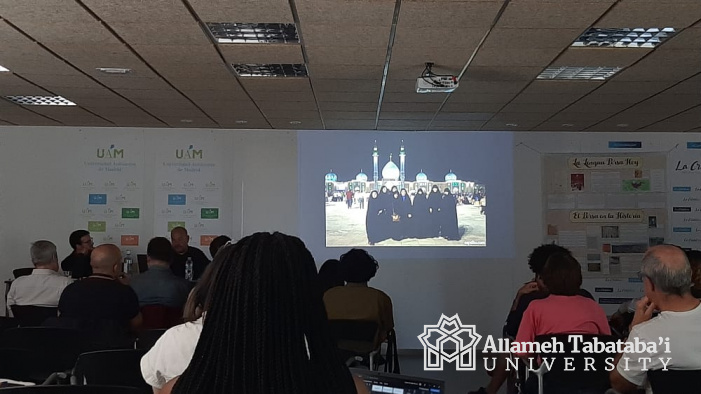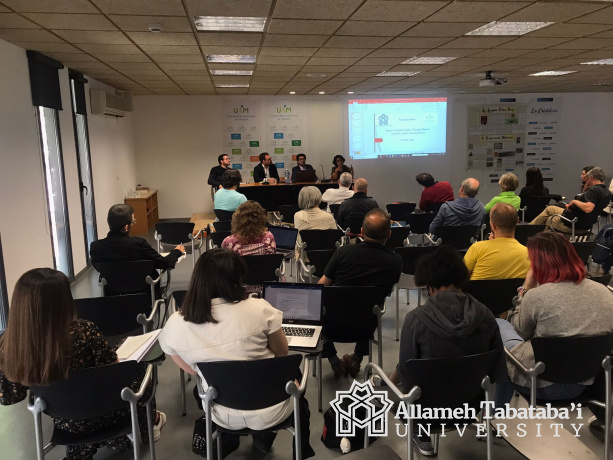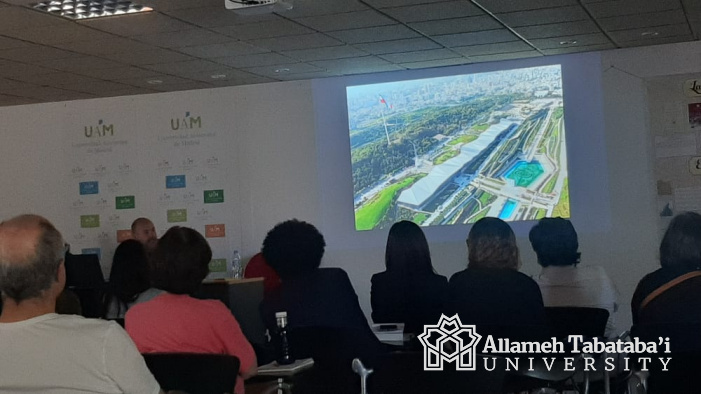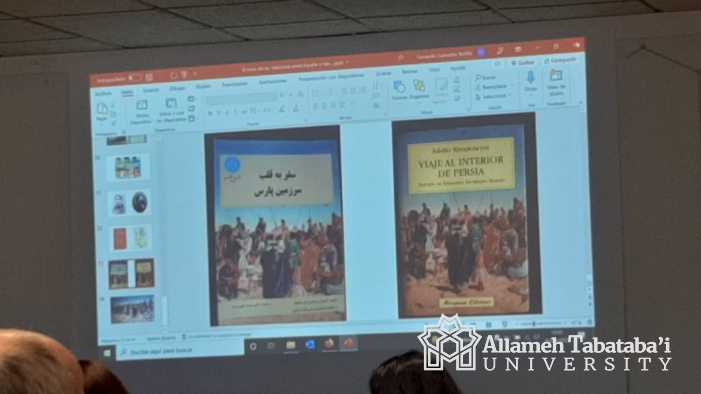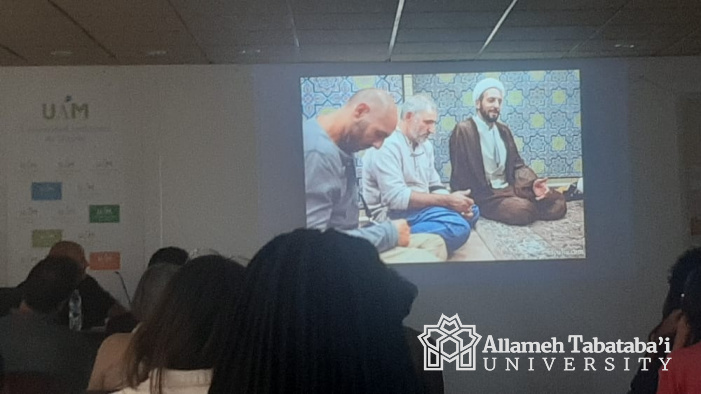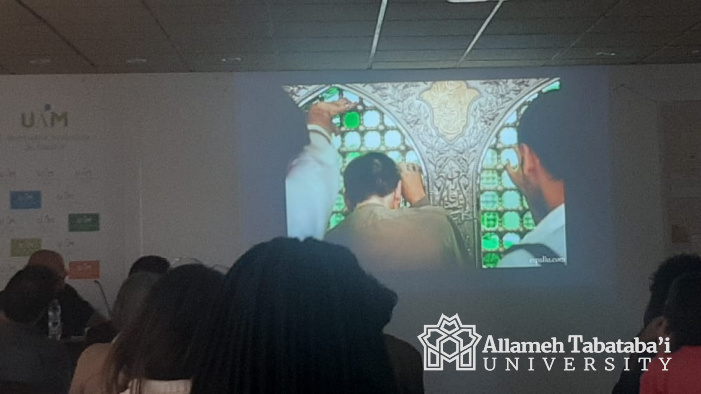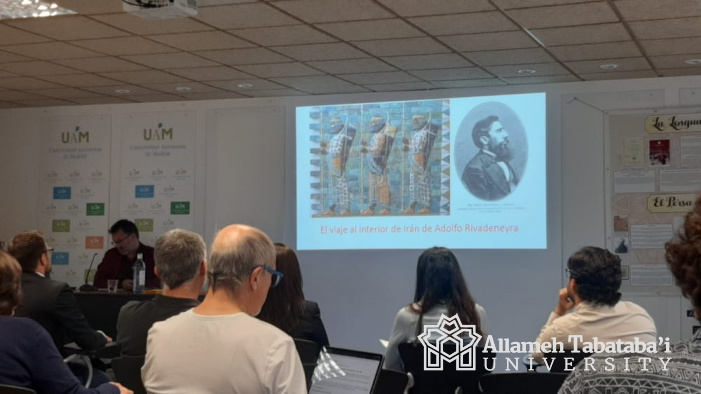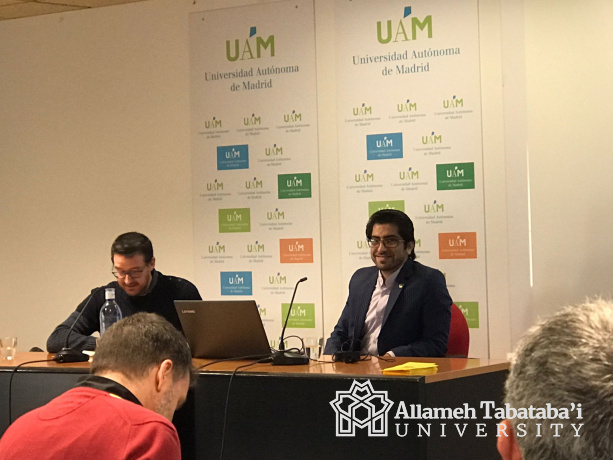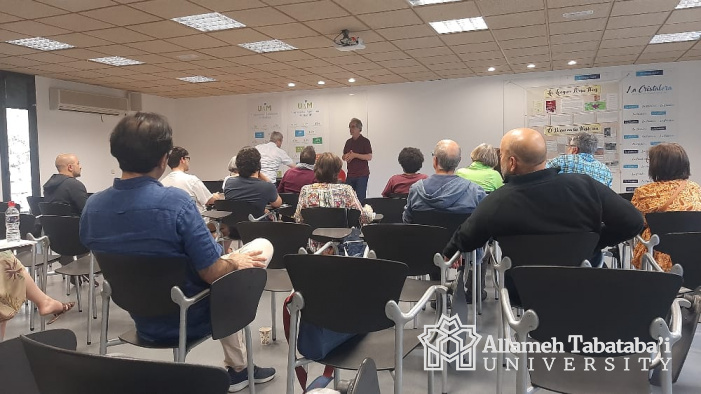International Summer School in Iranian Studies held in Madrid: Report of the 2nd and 3rd Days

Report by the Directorate for International Academic Cooperation–
Thanks to the joint efforts made by the Universidad Autónoma de Madrid (Spain), Allameh Tabataba’i University and the Cultural Advisor’s Office at the Iranian Embassy in Madrid, the first Summer School in Iranian culture and civilisation, entitled “Persia’s Cultural Heritage Throughout History: Symbols, Stories, and Encounters” was held on 24-26 June 2022 in Spain.
ATU President and Director of International Academic Cooperation were the ATU representatives who delivered speeches at the event. A report of the first day of the event is available on this page.
Report of the Second Day
Following the successful organisation of the first day of the Summer School on the topics of “Philosophy and Religion,” the second day of this scholarly event addressed the two major areas of “literature” and “arts,” and participants spoke about the various literary and artistic aspects of Iranian culture and civilisation. The papers presented on the second-day panels are as follows:
- From Persian Carpet to Iranian Cinema: An Introduction to Iranian Culture and Cinema, by Dr Farshad Zahedi, Lecturer in the Department of Communications, Carlos III University of Madrid;
- The Cultural Iranization of Islam in the Abbasid Period (750-850) by Dr Joaquín Rodríguez Vargas, PhD in Arabic Philology and Islamic Studies from the Complutense University of Madrid;
- Historical Aspects in Sa’di’s Poetry, by Dr Saeideh Ghasemi, PhD in Persian Language and Literature from Allameh Tabataba’i University;
- Books about Animal Profits, by Dr Carmen Ruiz Bravo-Villasante, Professor Emeritus in Arabic and Islamic Studies at the Universidad Autónoma de Madrid;
- Persian Manuscript Writing in the 15th-Century Iran, by Ms Shiva Mihan from the School of Historical Studies at the Institute for Advanced Study at Princeton University;
- The Language Surpassing all Times: Influences between Spanish Art and Contemporary Iranian Art: Farideh Lashai and Francisco de Goya, by Ms Shirin Salehi, a Visual Artist and Teacher.
The second day of the event was closed by a roundtable conference entitled the “Limitations and Challenges in Translating from Persian to Spanish”.
Report of the Third Day
The third and last day of the Summer School was moderated by Dr Javier Hernández Díaz, a PhD candidate in Persian Language and Literature at Allameh Tabataba’i University and the Universidad Autónoma de Madrid. The papers presented on the third day are as follows:
- Achaemenid Afghanistan: Bactria, Areia, and Arachosia, by Dr Alejandro Gallego López, Director of the Oriental Institute of Chicago in Afghanistan;
- Urban Conformation of Isfahan during the Beginning of the Persian-Shiite Empire (1598-1617), by Dr Narges Bazarjani, PhD in Sustainability and Urban Regeneration from the Polytechnic University of Madrid;
- The Historical Course of Tehran’s Physical Transformation from a Small Village to the Largest Metropolis in Iran (1786-2022), by Dr Seyed J. Faraji, Faculty Member and Director of International Academic Cooperation at Allameh Tabataba’i University;
- Beginning of Relations between Spain and Iran between the 15th and 19th centuries, by Dr Fernando Escribano Martín, Assistant Professor at the Universidad Autónoma de Madrid;
- Relations between Spain and Persia during the Reign of Alfonso XIII (1902-1931), by Dr Fernando Camacho Padilla, Associate Professor at the Universidad Autónoma de Madrid;
- The Wilāyat al-Faqih after the 1979 Revolution: The Wali-ye Faqih in the Constitution and the Nezām of the Islamic Republic of Iran, by Dr Raffaele Mauriello, Assistant Professor at Allameh Tabataba’i University;
- The Sacred Defense as the Basis for a Photography Project, by Manolo Espaliú Martínez, Photographer.
The Summer School's final part was a Closing Ceremony where Dr Fernando Camacho Padilla, Dr Fernando Escribano Martín, and Dr Raffaele Mauriello presented concluding remarks and summed up the presentations delivered during the past three days.



